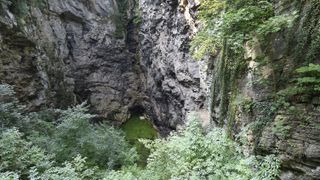
Sascha Pare
Sascha is a U.K.-based staff writer at Live Science. She holds a bachelor’s degree in biology from the University of Southampton in England and a master’s degree in science communication from Imperial College London. Her work has appeared in The Guardian and the health website Zoe. Besides writing, she enjoys playing tennis, bread-making and browsing second-hand shops for hidden gems.
Latest articles by Sascha Pare

Indian Ocean gravity hole: The dent in Earth's gravitational field created by the death of an ancient ocean
By Sascha Pare published
The Indian Ocean "gravity hole" is a region where Earth's mass is reduced, leading to weak gravitational pull, lower-than-average sea levels and a puzzle scientists have only just begun to solve.

Underwater volcano-like structure is spewing gas off Alaska's coast, US Coast Guard says
By Sascha Pare published
Mapping in the Chukchi and Beaufort seas off Alaska has uncovered a 1,640-foot-tall structure on the seafloor, but scientists say it's too early to determine the nature of the discovery.
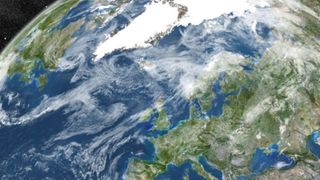
This spot will be key to the inevitable collapse of a key Atlantic current
By Sascha Pare published
New modeling research reveals that the Atlantic Meridional Overturning Circulation (AMOC) is particularly vulnerable to shifts in the Irminger Sea from increasing Arctic meltwater.
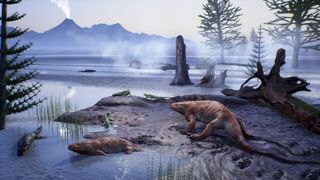
Woman accidentally discovers 280 million-year-old lost world while hiking in Italian Alps
By Sascha Pare published
Stunningly preserved fossils of reptilian footprints and underbellies discovered last year in the Italian Alps have helped researchers unearth a tropical lakeside ecosystem that predates dinosaurs.
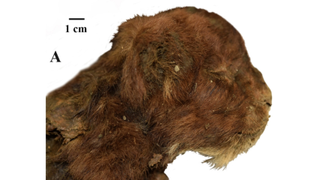
35,000-year-old saber-toothed kitten with preserved whiskers pulled from permafrost in Siberia
By Sascha Pare published
Researchers have analyzed mummified remains pulled from Siberia's permafrost in 2020 and determined they belong to a 3-week-old saber-toothed kitten that died at least 35,000 years ago.
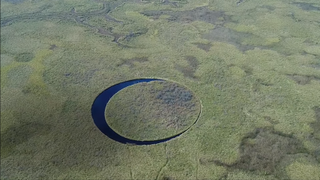
El Ojo: The mysterious floating island in Argentina's swampland that looks like a perfectly round eye
By Sascha Pare published
Argentina's El Ojo is said to harbor UFOs and the ghosts of ancient deities, but as far as scientists can tell, the island is simply a fluke of nature that formed through erosion and water currents.
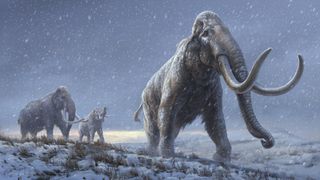
Mammoth quiz: Test your knowledge of the ice age beasts
By Sascha Pare published
Quiz Most of us are familiar with the mammoths in "Ice Age," but how much do you really know about these creatures? Find out by taking our quiz.

Charles Darwin quiz: Test your knowledge on the 'father of evolution'
By Sascha Pare published
Quiz Charles Darwin is famous for proposing the theory of evolution by natural selection, but how much more do you know about the British naturalist?
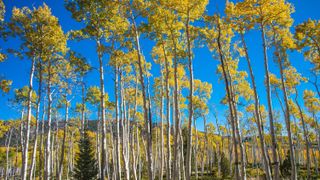
Pando: The world's largest tree and heaviest living organism
By Sascha Pare published
Pando is a giant aspen clone in central Utah that has been regrowing parts of itself for up to 80,000 years — but new threats mean the plant is now in decline.
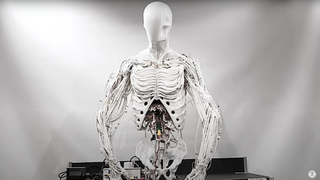
Watch this terrifying robotic torso spring into life
By Sascha Pare published
Startup Clone Robotics has created an ultra-creepy humanoid torso with artificial muscles that are activated through a battery-powered hydraulic system and covered in ghostly-white "skin."
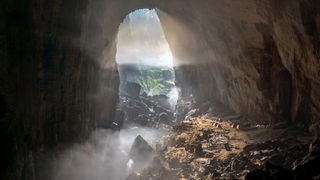
Hang Son Doong: The world's biggest cave, so 'outrageous in size' it fits 2 jungles and the 'Great Wall of Vietnam'
By Sascha Pare published
Vietnam's Son Doong cave is so large, you could squeeze 15 Great Pyramids of Giza inside it and fly a Boeing 747 airplane through some of its passages.

Earth is racing toward climate conditions that collapsed key Atlantic currents before the last ice age, study finds
By Sascha Pare published
Global warming during the Last Interglacial period caused so much Arctic ice to melt that Atlantic currents collapsed — and scientists say these are the conditions we could be heading toward.
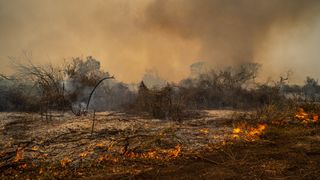
'We are teetering on a planetary tightrope': Cut emissions in half right now to prevent climate catastrophe, UN warns
By Sascha Pare published
A new U.N. report has found the world will warm by twice the 1.5-degree-Celsius target adopted in the Paris Agreement by 2100 if countries fail to slash greenhouse gas emissions right now.

High school students who came up with 'impossible' proof of Pythagorean theorem discover 9 more solutions to the problem
By Sascha Pare published
In a new peer-reviewed study, Ne'Kiya Jackson and Calcea Johnson outlined 10 ways to solve the Pythagorean theorem using trigonometry, including a proof they discovered in high school.
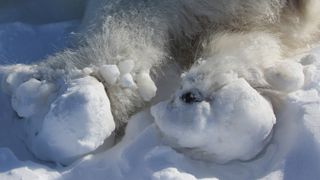
Polar bears are getting horrific injuries and huge 'ice balls' on their paws because of climate change, researchers say
By Sascha Pare published
Population assessments have revealed that polar bears in Greenland are suffering from crippling wounds on their paws due to wet snow that gets stuck to the pads and freezes into blocks.
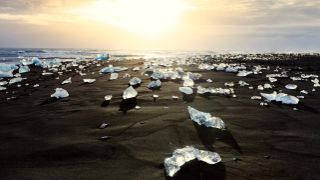
Diamond Beach: Iceland's spellbinding black sand beach covered in sparkling ice jewels
By Sascha Pare published
Icebergs and other glacial fragments regularly wash up on Iceland's southern Diamond Beach, making the sandy strip look like a field of gemstones.

30 years of polar climate data converted into menacing, 6-minute song
By Sascha Pare published
Geoenvironmental scientist Hiroto Nagai used publicly available climate data from the North and South poles to compose an ominous-sounding chamber music piece.
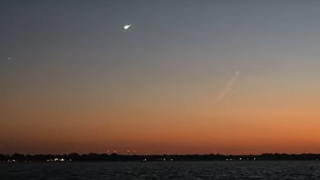
Watch huge fireball blaze over Lake Erie in stunning videos
By Sascha Pare published
A fiery meteor shot across the sky above the Great Lakes on Monday (Oct. 21) just after sunset, stunning witnesses from Michigan to New York, Kentucky and North Carolina.
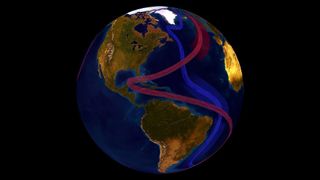
Key Atlantic current could collapse soon, 'impacting the entire world for centuries to come,' leading climate scientists warn
By Sascha Pare published
Leading climate scientists ring alarm bell on key Atlantic Ocean current collapse in open letter
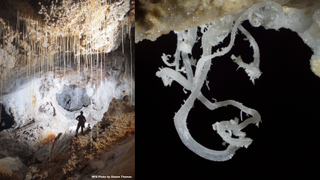
Carlsbad Caverns: New Mexico's otherworldly caves with gypsum flowers and 'soda straws' dangling from the ceiling
By Sascha Pare published
Carlsbad Caverns National Park in southeastern New Mexico is home to 119 known caves, including North America's largest cave chamber, the Big Room.
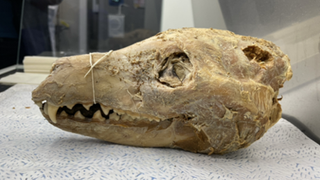
Most complete Tasmanian tiger genome yet pieced together from 110-year-old pickled head
By Sascha Pare published
Researchers working with Colossal Biosciences have assembled a near-complete Tasmanian tiger genome and developed artificial reproductive technologies that could help de-extinct the species.
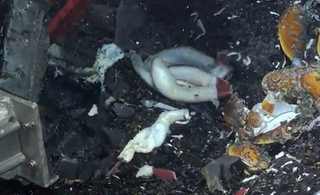
Ghostly white giant worms appear to be reproducing under the seafloor where tectonic plates meet
By Sascha Pare published
Researchers have discovered enormous tube worms and other creatures thriving in cavities beneath the seafloor on the East Pacific Rise, an ocean ridge near the Galápagos Islands.
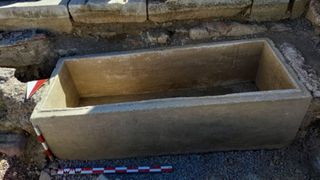
Grand tomb of Roman gladiator found in Turkey actually contains the remains of 12 other people
By Sascha Pare published
Inside a basilica in Turkey, researchers have unearthed a bone-filled tomb that may have belonged to a Roman gladiator named Euphrates and was later repurposed for a dozen people.
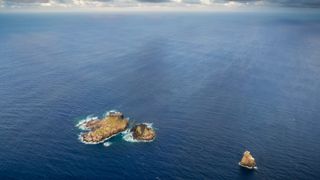
'Many more ancient structures waiting to be discovered': Lost chunk of seafloor hidden in Earth's mantle found off Easter Island
By Sascha Pare published
Researchers created a seismic map of Earth's interior beneath the southeastern Pacific Ocean and discovered an ancient slab of oceanic crust that appears to be stuck midway through the mantle.
Get the world’s most fascinating discoveries delivered straight to your inbox.
